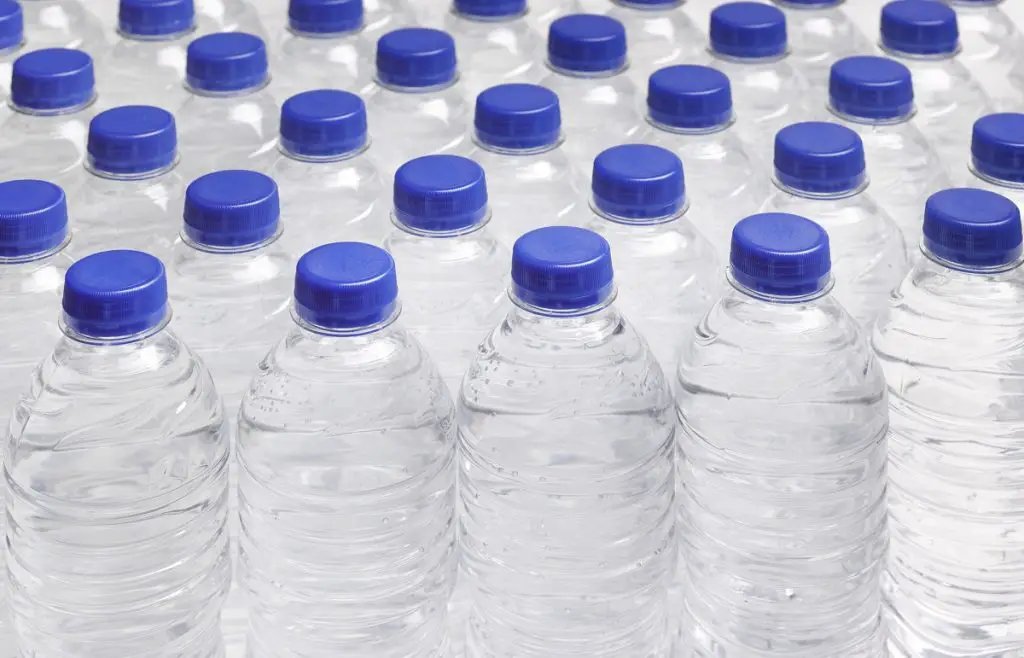Starting Wednesday, November 13, 2019, the Kenya Revenue Authority (KRA) will roll out the Excisable Goods Management System (EGMS) on non-alcoholic beverages.
The targeted products include bottled water, juices, energy drinks and soda among others.
KRA Commissioner for Domestic Taxes, Elizabeth Meyo said that the implementation of the system will enhance compliance and boost revenue collection by approximately Ksh4 billion (US$40 million).
Excise Stamps and fair competition
Meyo says that the system will also enable fair competition amongst traders in the sector.
“Currently we have up to 78 per cent of companies in the water sector who are not paying their fair share of taxes which is not fair to the 22 per cent who are compliant,” added Meyo.
She revealed that the system will enable KRA to monitor and ensure that all traders within the sector are compliant.
To ensure that the system runs without a glitch, Meyo said that KRA has also deployed more than 80 trained officers to enable the smooth implementation of the system around the country.
KRA is also facilitating the players in this sector with the installation of the system.
Rolling the EGMS in this sector will affect about 450 companies out of which 64 production lines are automated and the rest are manual.
The installation on the automated line will be concluded before the go-live date.
Already, 57 out of the 64 lines had been installed, according to KRA.
An alternative secure system is provided for manual lines.
Only licensed manufacturers and licensed importers of Excisable goods in accordance with Section 15 of the Excise Duty Act 2015 will able to obtain Excise Stamps.
Predatory increase of prices
During the implementation period, KRA will work closely with other relevant agencies including Competition Authority who will ensure that consumers are protected from the predatory increase of prices.
The Authority has undertaken extensive engagements with manufacturers, importers and all the concerned stakeholders in the water industry.
This includes the Kenya Association of Manufacturers (KAM), and Water Bottlers Association of Kenya (WBAK), among others.
KRA has also educated the stakeholders on the system and considered their views during the implementation. Key among the concerns was the cost of the Excise Stamps which was reviewed from Ksh 1.5 to Ksh 0.5 per stamp for bottled water and Ksh 1.50 to Ksh 0.6 per stamp for soda, juice and other non-alcoholic beverages.
Ksh 5.6 billion monthly
EGMS was first rolled out in 2013 on alcohol and cigarettes. Since then the system has enabled KRA to raise Ksh 5.6 billion monthly.
EGMS has also contributed immensely in the fight against illicit trade and levelled the playing ground for traders as well as protect consumers from substandard products.
Through the system, KRA has seized illicit products worth millions of shillings and saved the country from losing revenue.
KRA has demonstrated its capacity to serve as a key pillar in supporting Kenya’s development agenda through effective revenue mobilisation.
To grow business value and facilitate trade, KRA has put in place various mechanisms, key among them being the automation of processes to enhance efficiency.
Meyo reaffirmed that KRA will continue to facilitate businesses in collaboration with other government agencies to ensure that they have a conducive business – operating environment during the rollout.
Products manufactured or imported into Kenya prior to the go-live date will be allowed in the market up to 31 January 2020.
KRA steps up war against tax evasion
KRA has aggressively embarked on eliminating tax evasion in the country.
This has led to several arrests and prosecutions that have resulted in the unearthing of over Ksh60 billion ($581.29 million) worth of taxes evaded which KRA is in the process of recovering.
Some of the tax evasion cases include those of failure by taxpayers to pay the duty, fraud in relation to tax, failure to submit tax returns by due date amongst others.
Apart from evading paying their taxes for companies operating in Kenya, a report by an American think tank revealed that wealthy Kenyans are hoarding nearly two times Kenya’s 2018-19 Sh3 trillion (USD 30 billion) budget.
The revelations by the National Bureau of Economic Research (NBER) last year came as KRA continued on a bumpy road to hit tax targets.
According to the NBER report, the figure represents about 65 per cent of Kenya’s Gross Domestic Product (GDP).
NBER said the money by Kenya’s wealthiest individuals is hidden in offshore accounts since the proceeds are ill-gotten.
These offshore account holders also evade taxes bypassing Kenyan laws to protect their loot.
